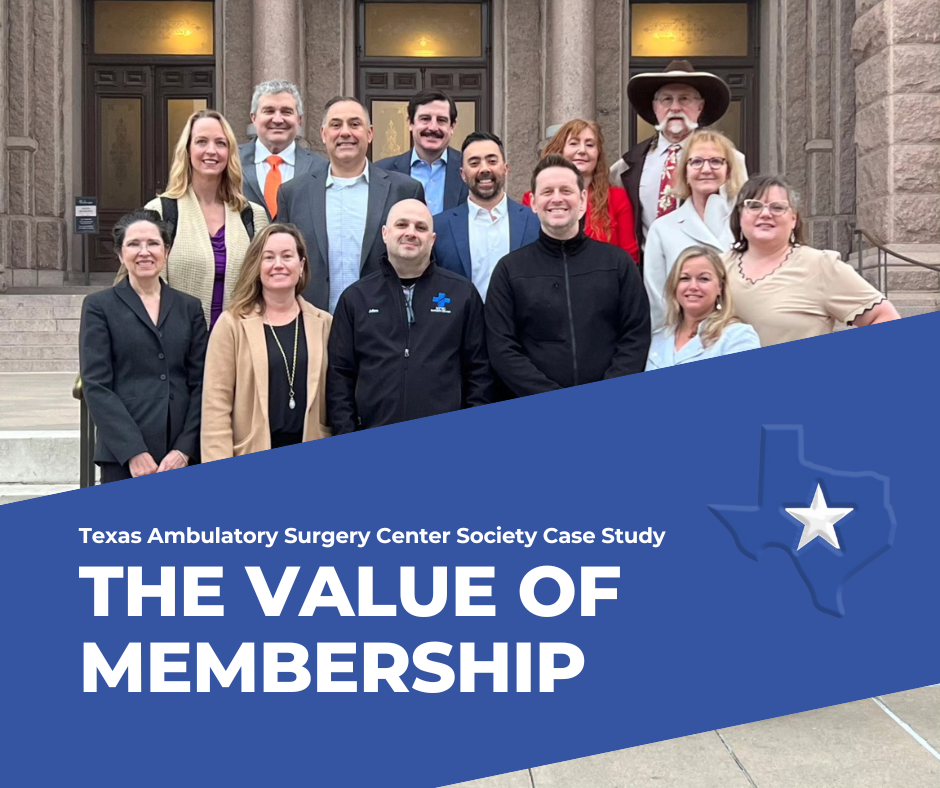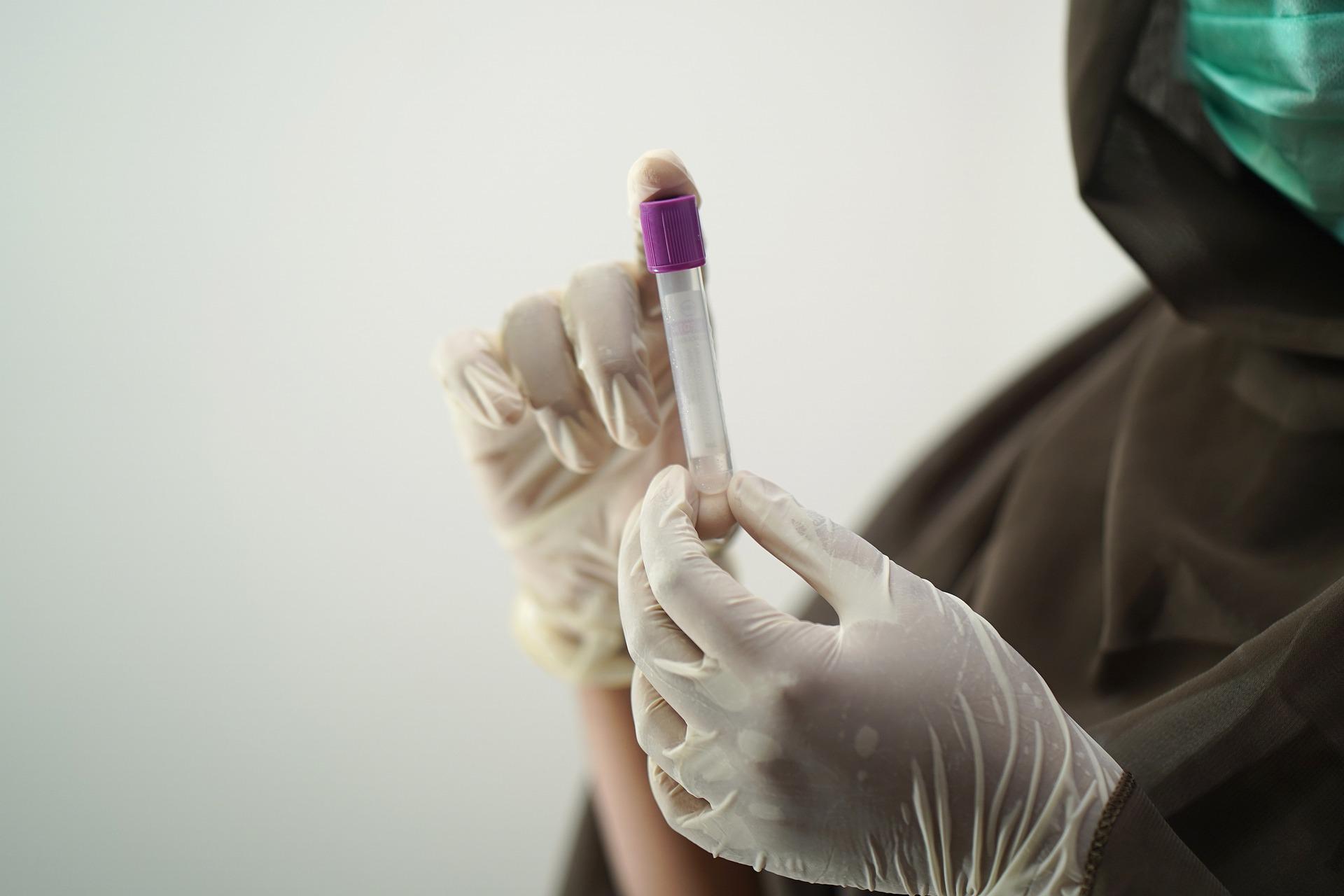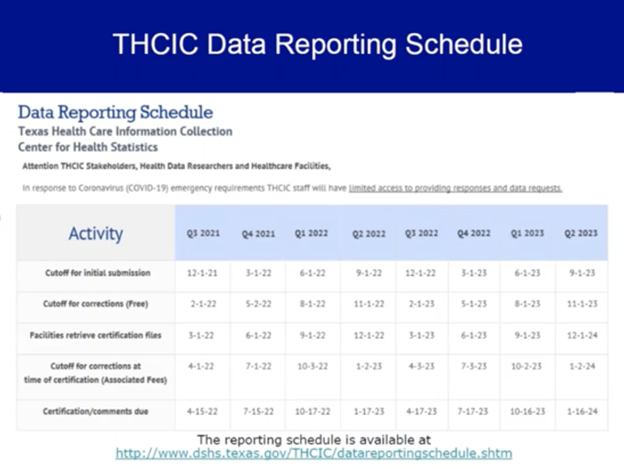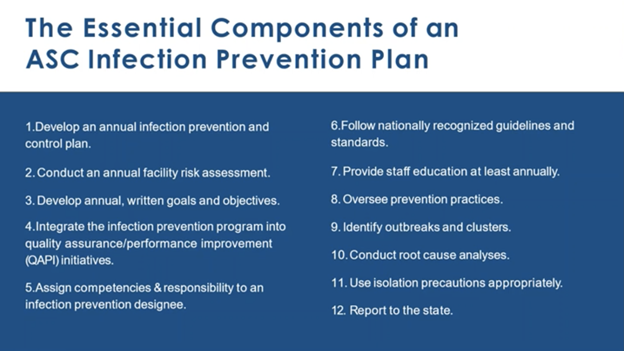Texas Ambulatory Surgery Center Society Case Study: The Value Of Membership
Being part of the Texas Ambulatory Surgery Center Society (TASCS) is more than just paying dues and receiving a newsletter; it’s about being part of a community that cares.

Being part of the Texas Ambulatory Surgery Center Society (TASCS) is more than just paying dues and receiving a newsletter; it’s about being part of a community that cares.

Between February 17 and 21, 2025, the Texas Ambulatory Surgery Center Society (TASCS) had its 2nd Annual Survey Readiness Workshop. This virtual event allowed participants to prepare for accreditation success with insight from experts.
On Day 1, Rommie Johnson, MPH, PMP, program director for the ambulatory surgery center (ASC)/office-based surgery (OBS) programs at Accreditation Commission for Health Care (ACHC), gave a great overview of ACHC and noted there are over 26,000 facilities the commission accredits nationwide, including over 2,400 in Texas.
On January 1, 2025, the Outpatient and Ambulatory Surgery Consumer Assessment of Healthcare Providers and Systems (OAS CAHPS) Survey becomes mandatory for Medicare-certified ASCs. OAS CAHPS scores are influenced by multiple factors, particularly the quality of care patients receive.
However, providing high-quality care will not guarantee high survey scores for your ASC. Since the survey measures the patient's experience (i.e., their perception of the care received), poor survey results could stem from a disconnect between what patients experience and what the survey questions address. To achieve favorable scores, you must provide great care and focus on providing a great experience concerning the topics highlighted in the survey. Addressing these topics in a way that aligns with patient perceptions should improve how patients feel about the topics and lead to better scores.

Text messaging has become one of the most important communication mechanisms for ASCs. It's a fast, efficient, cost-effective, and highly successful way to get timely messages to patients and their caregivers, staff and physicians, and vendors. Given the rise of spam calls, which are motivating more people to ignore incoming calls and voicemails from numbers they do not recognize, texting is a communication mechanism increasingly preferred by the public.
That's good news for ASCs already using or planning to add texting capabilities. Text messaging can be leveraged to communicate with stakeholders on a variety of financial, clinical, and operational issues. In fact, it can be used in many ways ASCs are often not taking advantage of — applications that go well beyond standard uses like appointment reminders and arrival and check-in instructions.

The Texas Ambulatory Surgery Center Society (TASCS) serves as the public policy advocate for the ambulatory surgery center (ASC) industry.

Thank you to all of those that joined our Virtual Town Hall on December 8! For those of you who were not able to attend, Gina Throneberry, RN, MBA, CASC, CNOR, Director of Education and Clinical Affairs at Ambulatory Surgery Center Association (ASCA), joined us and was able to provide a wealth of information on regulatory and quality measure reporting for ASCs.
Below you will find an overview of the updates and helpful links from the presentation:

Texas Health Care Information Collection (THCIC) representatives Tarik Brown, Andy Alegria, and Dee Roes, explained the data collection process, compliance policies, and distribution at one of the Texas Ambulatory Surgery Center Society’s (TASCS) virtual town hall events last month.
Often referred to as 835, 837, or 5010 files, Explanation of Benefit forms (EOBs) are statements commonly sent to covered individuals and providers from clearing houses. Acuet RCM: Revenue Cycle Management & Consulting representatives – Founder and President Michael Orseno and Revenue Cycle Manager Margo Hagiu – explained each component of EOBs and best practices at a recent Texas Ambulatory Surgery Center Society (TASCS) town hall.
Explanation of Benefits forms are composed of the following items: payee, patient information, service performed, date of service, CPT codes, denial codes, service location, billed charges fee, insurance allowable, co-insurance, adjustment reasons and/or codes & remarks, and a brief explanation of adjustment codes. The allowable amount is your contracted amount for the code shown. It is followed by the breakdown of that amount.

The ASC Quality Collaboration (ASCQC) is dedicated to advancing high-quality, patient-centered care in ambulatory surgery centers. This is a collaborative effort between the ASC industry, professional associations, ASC management companies, and health IT companies.
Pharmacy management is a key component to ambulatory surgery centers. It offers centers a guide on realistic ways to comply with regulations and helps improve efficiency with medication processes. That efficiency gives nurses more time at the patient’s bedside to give them the high-quality care they deserve. Amy Jones of Jones Premier Pharmacy Consulting and the director of pharmacy at St. David's South Austin Medical Center spoke to TASCS members about how pharmacy management can improve multimodal pain management, infection prevention, and patient satisfaction.
The pain experience for patients is complex, Jones said, and so surgery centers need to incorporate multiple pathways to relieve pain. ASCs should consider pharmaceutical, non-pharmaceutical, and even environmental methods, such as dimming lights to help make patients more comfortable.

The No Surprises Act has changed how medical professionals work and care for their patients. Chris Finelli, HST Pathways’ vice president of business development, shared with the Texas Ambulatory Surgery Center Society (TASCS) the main attributes of the act that went into effect on January 1, 2022.

The relationship between ambulatory surgery centers (ASCs) and laboratory / pathology centers is crucial to providing the best service to patients. Matt Thompson, CEO of Clinical Pathology Associates, met with Texas Ambulatory Surgery Center Society (TASCS) members to share key points on what to look for when selecting the best lab and path centers for partnership.

The Texas Ambulatory Surgery Center Society (TASCS) has seen significant growth and success in its ambulatory surgery centers (ASCs). Because of this, members recently collaborated on a checklist and template that supports ASCs as they embark on a journey of growing, expanding, and building new facilities.
When COVID-19 began to run rampant in 2020, the healthcare system struggled to handle the pandemic’s force. “I joke with people often that a couple years ago, before the pandemic, not many people thought much about supply chain, and now, it’s all anybody can think about,” said Nate Mickish, president of OnHand and vice president of Texas Health Resources. From nurses to masks, everything was in shortage, and vendors and providers alike were scrambling to offer healthcare workers everything they needed to stay safe on the job.
“We may have missed savings goals, we have not gotten all the contracts implemented that we want, but we kept people safe.” Mickish said. “That was the most important metric we could have met in 2020.”
The Texas Health Care Information Collection (THCIC) collects data and reports on healthcare activities, in order to provide patients with information about the cost and quality of healthcare in Texas. All ambulatory surgery centers in the state are required to report data related to revenue, services, and procedures. Tiffany Overton, training specialist for THCIC, went over the schedule for data reporting with TASCS members, as well as the significance of submitting timely and accurate information.

As the pandemic continues to fluctuate, infection prevention remains at the top of the list in the healthcare industry, and DisinfectWell CEO Rodrigo Zurita spoke to TASCS members on this topic, focusing on surgery centers.

On January 1, 2022, the No Surprises Act (NSA) took effect across the nation after bipartisan approval from Congress in December 2020. This new law establishes several requirements to enhance patient rights and eliminate surprise healthcare billing.
Through the NSA, surgery centers are considered “convening providers,” which means someone must coordinate how to obtain the cost for all providers working on a patient and show that estimate to the patient.

Nate Mickish has been with Texas Health Resources (THR) since 2013, and he started out building up supply chain management of non-acute care sites. As the program grew to over 300 facilities, Mickish and his team realized they could expand their work to help benefit even more centers. Thus, OnHand, one of THR’s joint ventures, was born in 2016, with a goal of offering supply chain solutions to lower costs, increase efficiency and strengthen clients’ revenues.
Ambulatory surgery centers are urged to focus on standardization and reducing risks, in order to help increase the level of high-quality, cost-effective care.
The Joint Commission, which accredits and certifies over 2,200 healthcare organizations, has been around for 70 years. For the past 47 years, though, it has specifically been serving ambulatory surgery centers. Recently, Valerie Henry, the commission’s business development manager of ambulatory care services, spoke with TASCS members on the “commitment to meeting certain performance standards.”
This spring, Mann Cataract Surgery Center will start providing ophthalmology services to patients. The new facility will also offer up a welcoming, versatile, safe, and exciting environment for all who visit this Houston location.
When it comes to designing and opening up a new surgery center, a brand must think about accessibility, layouts, aesthetics, and function. There are certain materials to consider and guidelines to follow long before staff members can begin serving patients.